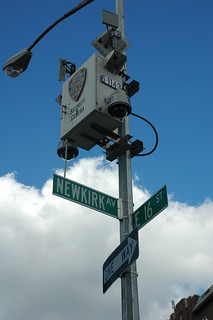Evidence? Ha. That’s for humanists, scientists and who knows what other dangerous?ists. It’s all about how we feel now
 Bob Garfield?Guardian
Bob Garfield?Guardian

Musings by Shahidul Alam
 Bob Garfield?Guardian
Bob Garfield?Guardian
 Glenn Greenwald, a writer for The Guardian, at home in Rio de Janeiro.
Glenn Greenwald, a writer for The Guardian, at home in Rio de Janeiro.
This past January, Laura Poitras received a curious e-mail from an anonymous stranger requesting her public encryption key. For almost two years, Poitras had been working on a documentary about surveillance, and she occasionally received queries from strangers. She replied to this one and sent her public key ? allowing him or her to send an encrypted e-mail that only Poitras could open, with her private key ? but she didn?t think much would come of it. Continue reading “How Laura Poitras Helped Snowden Spill His Secrets”
 Madeleine Bunting?The Guardian
Madeleine Bunting?The Guardian

Continue reading “Inside Bangladesh's garment factories: life and work in a dangerous industry”
 William Dalrymple The Guardian
William Dalrymple The Guardian
?Mere words cannot match the depths of your sorrow, nor can they heal your wounded hearts ? These tragedies must end. And to end them, we must change.? Every parent can connect with what Barack Obama said about the murder of 20 children in Newtown, Connecticut. There can scarcely be a person on earth with access to the media who is untouched by the grief of the people of that town.
It must follow that what applies to the children murdered there by a deranged young man also applies to the children murdered in Pakistan by a sombre American president. These children are just as important, just as real, just as deserving of the world?s concern. Yet there are no presidential speeches or presidential tears for them; no pictures on the front pages of the world?s newspapers; no interviews with grieving relatives; no minute analysis of what happened and why. Continue reading “?Bug-Splats?”

|
||
|
The Guardian and its sister paper, The Observer, are regarded as leading left-leaning news sources [GALLO/GETTY]
|
||
| Something has gone badly wrong at The Guardian. In the name of “robust debate”, the venerable left-leaning liberal newspaper has effectively given its stamp of approval to speech that goes beyond mere hate, speech that clearly crosses the line into incitement to murder unarmed civilians and journalists. What lies behind this worrying development, and what does it tell us about the state of media in general?On 15 August, the Guardian announced the hiring of Joshua Trevi?o as a correspondent with the paper’s US politics team. Janine Gibson, editor-in-chief of the Guardian US, said that Trevi?o would bring “an important perspective” to readers. Trevi?o is a Republican party operative, paid political consultant and ideologue for hire. But while some may not like those attributes, they would not make him unique among columnists. What does distinguish Trevi?o is his propensity to call for violence. Continue reading “What's gone wrong at The Guardian?” |
